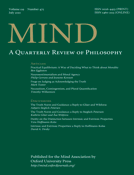Three new journal articles in the philosophy of games have recently been published by C. Thi Nguyen.
 First, “Games and the art of agency” (official version and free pre-print) has been published in Philosophical Review. This paper argues that games are the art form that works in the medium of agency. Game designers don’t just create environments; they design who we will be in those environments. Game designers designate goals and abilities for the player; they shape the agential skeleton which the player will inhabit during the game. And players often submerge themselves in an alternate agency, taking on alternate ends temporarily, for the sake of their aesthetic experience of struggling. Game-playing, then, illuminates a distinctive human capacity. We can take on ends temporarily for the sake of the experience of pursuing them. Game play shows that our agency is significantly more modular and more fluid than we might have thought.
First, “Games and the art of agency” (official version and free pre-print) has been published in Philosophical Review. This paper argues that games are the art form that works in the medium of agency. Game designers don’t just create environments; they design who we will be in those environments. Game designers designate goals and abilities for the player; they shape the agential skeleton which the player will inhabit during the game. And players often submerge themselves in an alternate agency, taking on alternate ends temporarily, for the sake of their aesthetic experience of struggling. Game-playing, then, illuminates a distinctive human capacity. We can take on ends temporarily for the sake of the experience of pursuing them. Game play shows that our agency is significantly more modular and more fluid than we might have thought.
 Second, “Autonomy and aesthetic engagement” (official version and free pre-print) has been published in Mind. The paper applies the account of games from “Games and the art of agency” to offer a new theory of the value of art. Here is an old question from the philosophy of art: we seem to care about getting the right judgments about art, so why don’t we just defer to aesthetic experts? We seem to want more independence from our aesthetic lives than our scientific lives. The best explanation is that art is rather like a game. In games, we try to win, but often, winning is only the local goal, and not our larger purpose for engaging in the activity. Our purpose is to struggle to win for ourselves. Similarly, with art, we often try to get the correct judgments. But getting the right judgment isn’t our real purpose; our purpose is to engage in the activity of struggling to get them right. The paper then suggests a unified account of the value of art and games: the engagement account, where, often, the value of the activity comes not from achieving success, but in the activity of trying to succeed.
Second, “Autonomy and aesthetic engagement” (official version and free pre-print) has been published in Mind. The paper applies the account of games from “Games and the art of agency” to offer a new theory of the value of art. Here is an old question from the philosophy of art: we seem to care about getting the right judgments about art, so why don’t we just defer to aesthetic experts? We seem to want more independence from our aesthetic lives than our scientific lives. The best explanation is that art is rather like a game. In games, we try to win, but often, winning is only the local goal, and not our larger purpose for engaging in the activity. Our purpose is to struggle to win for ourselves. Similarly, with art, we often try to get the correct judgments. But getting the right judgment isn’t our real purpose; our purpose is to engage in the activity of struggling to get them right. The paper then suggests a unified account of the value of art and games: the engagement account, where, often, the value of the activity comes not from achieving success, but in the activity of trying to succeed.
 Third, “The right way to play a game” (official version) has been published in Game Studies. The paper argues, against some contemporary writers, that there are very good reasons to follow the rules of a game. Recent analytic philosophy of art offers a useful distinction between the material substrate of an artwork, and the artwork itself. An artwork isn’t the same as its material; it is the material as encountered according to certain prescriptions. You haven’t experienced Melville’s Moby Dick if you read all the words out of order; you haven’t experienced Van Gogh’s Irises if you closed your eyes and just tasted the canvas. Similarly, you haven’t encountered the artwork which is the game unless you play by the rules and pursue the specified goals. The paper suggests that there are two distinct interests: free play and aesthetic communication. And these interests often run contrary to one another. To play freely, you should ignore the rules. To receive aesthetic communications, you should play by the rules. Finally, the paper provides a taxonomy of game types in terms of their distinctive implicit requirements for an adequate encounter. Party games need to be played in the right spirit of silliness and low-skill competition. Heavy strategy games need to be played many times. And community evolution games, like Magic: the Gathering, need to be played while embedded in the live and evolving community meta-game.
Third, “The right way to play a game” (official version) has been published in Game Studies. The paper argues, against some contemporary writers, that there are very good reasons to follow the rules of a game. Recent analytic philosophy of art offers a useful distinction between the material substrate of an artwork, and the artwork itself. An artwork isn’t the same as its material; it is the material as encountered according to certain prescriptions. You haven’t experienced Melville’s Moby Dick if you read all the words out of order; you haven’t experienced Van Gogh’s Irises if you closed your eyes and just tasted the canvas. Similarly, you haven’t encountered the artwork which is the game unless you play by the rules and pursue the specified goals. The paper suggests that there are two distinct interests: free play and aesthetic communication. And these interests often run contrary to one another. To play freely, you should ignore the rules. To receive aesthetic communications, you should play by the rules. Finally, the paper provides a taxonomy of game types in terms of their distinctive implicit requirements for an adequate encounter. Party games need to be played in the right spirit of silliness and low-skill competition. Heavy strategy games need to be played many times. And community evolution games, like Magic: the Gathering, need to be played while embedded in the live and evolving community meta-game.






 AMERICAN SOCIETY FOR AESTHETICS
AMERICAN SOCIETY FOR AESTHETICS